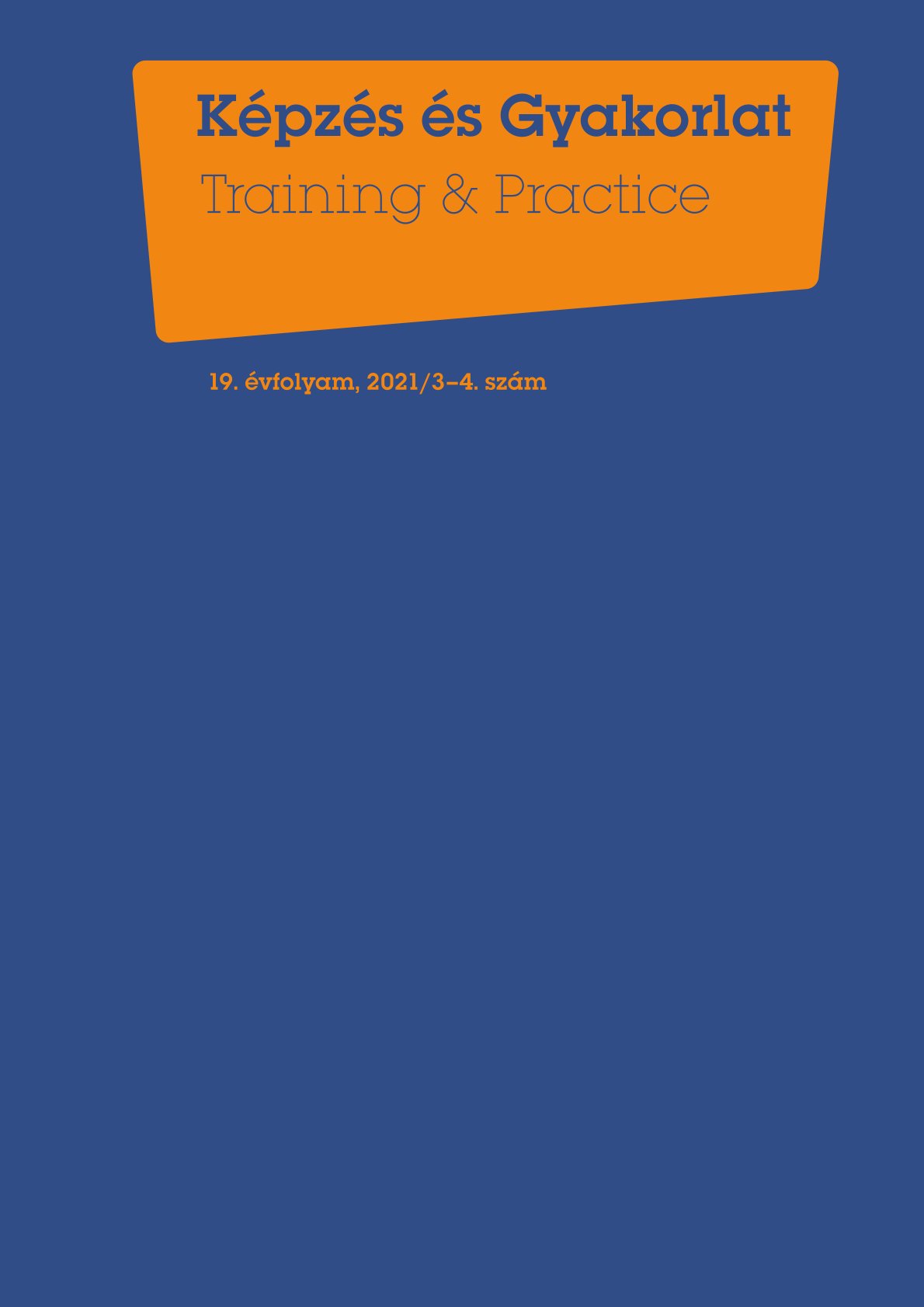Teachers’ and teacher trainees’ reading strategy use and reading habits in their mother tongue and foreign language
DOI:
https://doi.org/10.17165/TP.2021.3-4.17Abstract
Teachers have an important effect on their students thus it is essential to examine this rather neglected area of research. Our aim is to identify Hungarian teachers’ (N=256) and teacher trainees’ (N=70) reading strategy use and reading habits in mother tongue and foreign language. The items of the Hungarian version of MARSI (Metacognitive Awareness of Reading Strategies) were adapted (Molitorisz, 2013), along with items on reading habits. Based on the results those in the sample use fewer reading strategies and read less in foreign languages. Mostly short texts and global reading strategies are preferred both in mother tongue and foreign language. This research is a step towards shedding a light on Hungarian teachers’ reading.
References
Abbott, M. L. - Lee, K. - Rossiter, M. J. (2017). Enhancing the Impact of Evidence-based Publications on K-12 ESL Teacher Practices. Alberta Journal of Educational Research, 63. évf. 2.sz. pp. 193-213.
Afflerbach, P. - Pearson, P. D. - Paris, S. D. (2017). Skills and strategies: their differences, their relationships and why they matter. In. Mokhtari, K. (Ed.), Improving reading comprehension through metacognitive reading strategies instruction, (pp 33-49). Lanham, Maryland: Rowman & Littlefield.
Aşıkcan, M. - Saban, A., (2018). Prospective teachers' metacognitive awareness levels of reading strategies. Cypriot Journal of Educational Science, 8.évf. 1.sz. pp. 23-30.
Broemmel, A. D. - Evans, K. R. - Lester, J. N. - Rigell, A., & Lochmiller, C. R. (2019). Teacher reading as professional development: insights from a national survey. Reading Horizons: A Journal of Literacy and Language Arts, 58.évf. 1.sz. pp. 1-21.
Cho, K. S. - Krashen, S. (2019). Pleasure reading in a foreign language and competence in speaking, listening, reading and writing. TEFLIN Journal, 30. évf. 2. sz. pp. 231-236. DOI: https://doi.org/10.15639/teflinjournal.v30i2/231-236
Habók, A., - Magyar, A. (2021). Tanárszakos hallgatók angolnyelv-tanulási és online olvasásistratégia-használata közötti összefüggések. Neveléstudomány: oktatás kutatás innováció, 9. évf. 1. sz. pp. 48-59. DOI: https://doi.org/10.21549/NTNY.32.2021.1.5
Hódi, Á. - B Németh, M. - Tóth, E. (2017). Második évfolyamos tanulók szövegértés teljesítményének alakulása az olvasástanítás személyi, módszertani és környezeti feltételeinek tükrében. Magyar Pedagógia, 117. évf. 1.sz. pp. 95-136. DOI: https://doi.org/10.17670/MPed.2017.1.95
Józsa K. - Steklács J. (2012): Az olvasás tanításának tartalmi és tantervi szempontjai. In. Csapó Benő és Csépe Valéria (Ed.), Tartalmi keretek az olvasás diagnosztikus értékeléséhez, (pp 137-188). Budapest: Nemzeti Tankönyvkiadó.
Józsa, G. - Józsa, K. (2014). A szövegértés, az olvasási motiváció és a stratégiahasználat összefüggése. Magyar Pedagógia, 114. évf. 2. sz. pp. 67-89.
Isakson, R. L. - Isakson, M. B. (2017). Preparing college students to learn more from academic texts through metacognitive awareness of reading strategies. In. Mokhtari, K. (Ed.), Improving reading comprehension through metacognitive reading strategies instruction, (pp 155-175). Lanham, Maryland: Rowman & Littlefield.
Kazi, A. S. - Moghal, S. - Asad, Z. (2020). Metacognitive awareness of reading strategies for academic materials: a study of undergraduate students in Pakistan. Global Social Sciences Review, 5. évf. 1.sz. pp. 44-51. DOI: https://doi.org/10.31703/gssr.2020(V-I).05
Kálmán O. (2019). A felsőoktatás oktatói: elképzeléseik a tanításról és a saját szakmai tanulásukról. Magyar Pedagógia, 119. évf. 3. sz. pp. 173-197. DOI: https://doi.org/10.17670/MPed.2019.3.173
Koulianou, M. - Samartzi, S. (2018). Greek teachers' metacognitive awareness on reading strategies. New Trends and Issues Proceedings on Humanities and Social Sciences, 5. évf. 1.sz. pp. 68-74. DOI: https://doi.org/10.18844/prosoc.v5i1.3384
Mokhtari, K. - Reichard, C. A. (2002). Assessing students' metacognitive awareness of reading strategies. Journal of Educational Psychology, 94. évf. 2. sz. pp. 249-259. DOI: https://doi.org/10.1037//0022-0663.94.2.249
Molitorisz A. (2009). Szakközépiskolás tanulók olvasásistratégia-használatának felmérése a MARSI kérdőívvel. Magyar Pedagógia, 109. évf. 3. sz. pp. 287-313.
Reutzel, D. R. (2017). The Construction-Integration model of text comprehension: A lens for teaching the Common Core Reading Standards. In. Mokhtari, K. (Ed.), Improving reading comprehension through metacognitive reading strategies instruction, (pp. 69-92.). Lanham, Maryland: Rowman & Littlefield.
Rimensberger, N. (2014). Reading is very important, but...: taking stock of South African student teachers' reading habits. Reading & Writing-Journal of the Reading Association of South Africa, 5. évf. 1.sz. pp. 1-9. DOI: https://doi.org/10.4102/rw.v5i1.50
Rwoo, S. A. - Peng, C. F. - Halim, H. A. (2020). A study on Malaysian English language teachers'reading habits: types of materials read and rate of extensive reading. Language, 3. évf. 10.sz. pp. 18-34.
Steklács J. (2013). Olvasási stratégiák tanítása, tanulása és az olvasásra vonatkozó meggyőződés. Budapest: Nemzedékek Tudása Tankönyvkiadó Zrt.
Stoffelsma, L. (2018). Short‐term gains, long‐term losses? A diary study on literacy practices in Ghana. Journal of Research in Reading, 41. évf. 1. sz. pp. 66-84. DOI: https://doi.org/10.1111/1467-9817.12136
Tóth M. (2020). A hazai felnőtt lakosság olvasási és könyvtárhasználati szokásai 2019-ben. In: "Az én könyvtáram": Módszertani mozaikok: Kutatások és válogatott tanulmányok gyűjteménye, (pp. 277-317). Budapest: Fővárosi Szabó Ervin Könyvtár.
Xin, Y. - Ismail, F. B. - Abd Aziz, A. B. (2016). L1 and L2 Reading Strategies Connection: A Review of Past Studies. Mediterranean Journal of Social Sciences, 7. évf. 1.sz. pp. 306-310. DOI: https://doi.org/10.5901/mjss.2016.v7n1s1p306
Zs. Sejtes Gy. (2015): Szövegelünk? Szövegeljünk! A szöveg fogalma a pedagógiai alkalmazás tükrében. In Torgyik Judit (Ed.), Százarcú pedagógia, (pp. 3-10.). International Research Institute.
Downloads
Published
Issue
Section
License
Copyright (c) 2021 Tary Blanka

This work is licensed under a Creative Commons Attribution-NonCommercial-NoDerivatives 4.0 International License.












